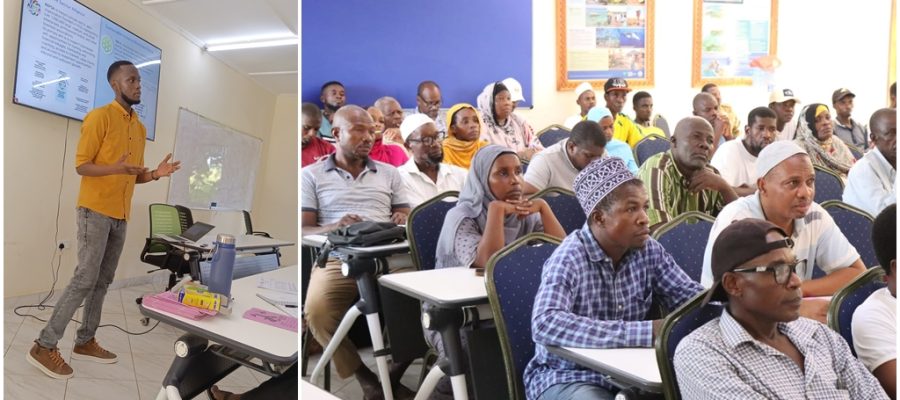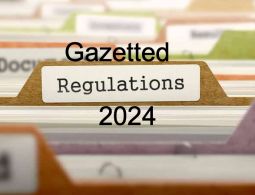Kenya Plastics Pact was represented by its secretariat, Sustainable Inclusive Business-Kenya (SIB-K) under Kenya Private Sector Alliance (KEPSA), in the Pre-World Environment Day virtual Youth and Women Dialogue on May 16th 2023, organized by the United Nations Environment Program (UNEP).
Observed annually on June 5th, The World Environment Day (WED) focuses on raising awareness and promoting action on environmental issues. It serves as a platform for global dialogue and collaboration to address pressing environmental challenges. The theme this year is ‘Solutions for plastic pollution’, which calls for urgent action in cleaning our world and reversing the curve of global plastic pollution.
While welcoming participants to the dialogue session, Ms. Damaris Mungai from UNEP’s Gender and Youth Portfolio highlighted the critical role of youth and women in driving environmental action, emphasizing the need for their active involvement in green and circular business models for beating plastic pollution.
In the interactive session, Dr. Rose Mwebeza – UNEP Africa Director and Regional Representative, underscored the need to turn the plastic pledge into an economic system that can be harnessed by the youth and women. Plastic pollution is an opportunity for creating a totally new ecosystem that can be harnessed for sustainability, for doing good, and for creating jobs.
The plastics value chain can further create opportunities for the youth in engineering, chemical jobs, recycling, new business arrangements, and managerial positions in new waste management entities. She noted that the growing number of youths in Africa; who are most innovative, agile, and a huge asset, present an opportunity to venture into sustainable businesses to deal with the critical environmental problems including pollution.
Dr. Mary Nyasimi, UNESCO‘s Regional Office for Eastern Africa singled out plastic pollution as a problem that needs urgent attention while calling upon businesses to cut down single-use plastic packaging. She commended the Government of Kenya for banning plastic packaging bags in 2017 and the single-use plastics in protected areas adding that this was a great move in the reduction of plastic pollution towards sustainability. She then affirmed UNESCO’s commitment to supporting research to develop innovations that will tackle the plastic waste problem.
Ms. Anne Wambui, the Public Health Officer – Air Quality Control at Mama Doing Good Foundation, in her remarks, appreciated the role of collaboration in ending plastic pollution noting that when no action is taken, we could end up with 33bn tonnes of plastics in the environment by 2030. She assured support to women and youth-led organizations in sustainable businesses.
Representing UNEP’s Major Group For Children and Youth, Mr. Alphonce Munyao in his rallying call noted that fossil fuels from which plastics are derived have massively disrupted the environment and climate system and continue to threaten both health and the environment. He shared that with increased awareness and necessary support, Africa and the youth can take up leadership roles, harness opportunities, and develop innovative solutions to recycle and upscale plastic waste. He concluded by emphasizing the importance of empowering youth to become agents of change, leveraging their energy, innovation, and enthusiasm for sustainable development.
Ms. Njeri Ndonga, representing AfriPlastics, shared on the Afri-Plastics challenge which focuses on innovative solutions to deal with marine waste by recycling, repurposing, and upcycling plastic waste. She shared the example of the Kenyan Mega-gas which transforms plastic waste into cooking gas and has a community kitchen for the local businesses.
Mr. Teddy Obiero, the Chairman of Nairobi Metro Residents Associations shared the best practice on segregation of waste at source and other environmental initiatives such as tree planting at Nyayo Estates in Kenya. With over 5,000 units, the estates since the year 2020 have affected the circular economy over 10 tons of plastic has been segregated at source and collected by recyclers. He highlighted that the involvement of the consumers and especially children in the circularity ecosystem is one great way to increase the rate of success. He concluded by highlighting the critical role of children in driving environmental action and emphasized the importance of empowering children to become agents of change.
The dialogue then had breakaway sessions where different thematic areas were further discussed including climate, environment and creation of green jobs.
During the environment breakaway session, moderated by KEPSA’s Faith Ngige, it was postulated that plastic pollution originates from various sources, including inadequate waste management systems, littering, industrial activities, and improper disposal of plastic products. Common plastic items that contribute to pollution include single-use plastics like bags, bottles, straws, and food packaging containers.
The beating plastic pollution solutions include a favorable policy environment for green growth and circular economy, increasing recycling rates through Extended Producer Responsibility (EPR) inclusion of the informal sector in the value chain and education and awareness were presented as avenues for tackling plastic pollution.
Some of the prevalent challenges include low financial incentives for the waste management sector, open burning of plastics, and lack of coordination and organization of the existing interventions leading to low impact. Opportunities for scale-up include the formation of cooperatives and associations for the informal sector, consumer and community training and awareness for mindset and behavior change, and informal sector inclusion enforcement of existing laws were discussed.
Ms. Faith Ngige further highlighted Kenya’s policy interventions that include the shift from a linear to a Circular Economy as articulated in the sustainable waste management policy 2021, the Sustainable Waste Management Act 2022, and the Extended Producer Responsibility regulations under development that will spur a transformational shift to circularity.
The meeting ended with a call to action from most of the closing remarks with a particular urge to the participants to live the lessons and echo the messages gotten from the call.
Ms. Josephine Wawira, KEPSA’s Sustainable Inclusive Business Communications lead, moderated the session on Green Jobs. Some of the opportunities presented by the plastics value chain are that only about 8% – 10% of plastic is recycled in Kenya, with the remainder being landfilled or incinerated. This presents an opportunity for the youth and women to Invest in circular and climate-smart innovations and to scale up the young innovators’ solutions. The Kenya Plastics Pact, of which some of the panelists are members, is boosting green jobs by providing a platform to co-design, ensure investment and implement collaborative projects and innovations to tackle key challenges in the value chain including design, collection, sorting, recycling and end markets for recycled material.
Dr. Cyrille-Lazare Siewe, Coordinator of the UNEP Kenya Country Programme, in his closing remarks, emphasized the urgency of addressing environmental challenges and highlighted the crucial role of youth and women in driving change.
The insights gained from the webinar will contribute to the World Environment Day deliberations, shaping policies, programs, and actions aimed at protecting and preserving the environment for present and future generations. The Virtual Youth and Women Dialogue for World Environment Day 2023 Webinar provided a platform for youth and women to actively engage in discussions, share ideas, and contribute to environmental sustainability efforts.



